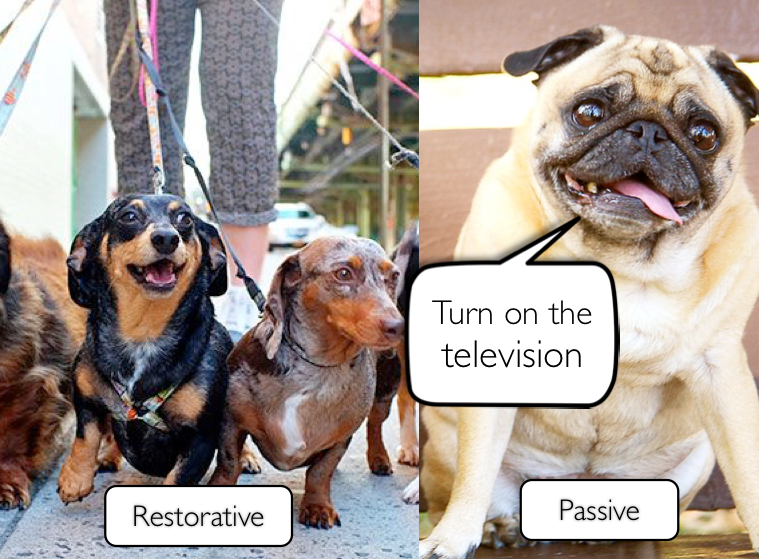
When I was working on my doctorate, I was part of a writer’s group at university.
We would meet three times a week to write in 45 minute sprints (no distractions), followed by 15 minute breaks. By lunchtime, we had completed three 45 minute writing sessions. I felt like a vegetable by the end of the third sprint but I had words down on paper. That’s all that mattered.
There were two main challenges we all faced on writing group days:
1) Showing up to write (this was by far the hardest part); and
2) Being disciplined to get back into writing after taking a 15 minute break.
I developed strategies to help me deal with both of these challenges. This blog post focuses on strategies that can help you deal with the second challenge: Getting back into your work after taking a short break.
Forget willpower and motivation. Enter habits.
I often meet students who will say, “I’m lazy”, “I’ve got no willpower” and “I wish I more motivated and disciplined like you”.
Reality check: willpower will only get you so far in life. What do you need? Strategies. That’s worth repeating again: you need strategies. Strategies that will help you show up and get to work. And then get back to work after taking a break.
Strategies that you turn into habits so you don’t even have to think about doing them. You just automatically execute the behaviour. Boom! And that there is the power of a habit. You go into zombie mode and do what needs to be done.
Strategies to get back on track (after taking a break)
Below are seven strategies you can experiment with to help you get back into studying after taking a short break:
1) Use a timer
If I don’t set a timer for my breaks, it’s just too easy for my breaks to drag on and on. I tend to get lost in random activities (reading, cleaning my room, making a lasagna, etc).
The timer is my prompt. It’s my cue. When it goes off after 5 minutes, I know it’s time for business. It’s time to get back into it. No excuses.
Of course, there have been times when I have simply ignored the beeps coming from my timer. But without those little beeps, it’s a lot harder to get back on track.
2) Create a list of short break activities
Grab a piece of paper or a whiteboard and write down what you plan to do on your breaks. Will you go for a quick 5 minute walk? Will you make a smoothie? Will you prepare a healthy snack? Write these activities down.
If you’re clear on what you’ll be doing on each break, you’re more likely to stick to just doing that and not stray from those activities. You’ll also have a sense of how long each task will take. You know that making a smoothie doesn’t take very long. But starting a new netflix series? That could take anywhere from 30 minutes to several hours.
3) Choose your activities wisely

Rest activities such as ‘Go on Youtube’ or ‘Watch Netflix episode’ ring alarm bells for me. They make me feel nervous. Here’s why …
Unless I turn off the autoplay feature, it’s just too easy to get screen sucked into the vortex of the Internet. Instead of watching one episode of a Netflix series, before you know it you’ve watched the entire first two seasons.
In addition, activities in front of any screen tend to be passive. This means they are rarely as relaxing and restorative for our minds as other break activities (e.g. physical movement and spending time out in nature).
If you’re like most people and tend to get screen sucked easily, reserve these passive activities as rewards for later in the evening (after you’ve completed the most important/urgent/hardest pieces of work).
4) Enlist a team of gentle naggers
Other people can help us stay on track. You see, often when we procrastinate, we don’t realise we’re doing so. It can be incredibly helpful to have another person point out when we’ve gone astray. It can be as simple as, “Don’t you need to finish that assignment tomorrow? You’ve been watching cat videos for over 30 minutes. Seriously …”
These gentle reminders can save you hours of time and help you avoid last minute cramming.
5) Create an imaginary friend

Work as if there is someone standing over your shoulder. Work in such a way that the imaginary person standing over your shoulder would think, “Wow, look at her go! She’s a study machine! She knows what she’s doing. What a powerhouse!”.
I realise this sounds a little crazy, but it works.
6) Ask yourself some tough questions
It’s easy to get lost in random activities on your breaks. Some activities can become all consuming, such as reading trashy celebrity news. At some level we all know reading celebrity gossip isn’t a good use of our time but it can be hard to stop once you start.
Here’s a simple trick you can use: set a timer to go off every hour. When the timer goes off, ask yourself the following questions:
What am I doing right now?
Am I doing what I need to do?
Is this the best use of my time?
If you’ve strayed from what you need to be doing, don’t beat yourself up. Gently guide yourself back on track.
7) Get clear on the next microtask
You might be avoiding getting back into your work for the simple reason that you feel stuck. Let’s face it, feeling stuck can be demoralising.
You need to break the inertia by engaging in a small microtask.
A microtask is the smallest and easiest task you can do. It shouldn’t take more than a few minutes. Write that task down on a whiteboard.
Now is the time to block out everything else (turn off your phone, lock yourself out of the Internet, etc) and declare, “This is all I need to do. Nothing more!”. Once you’ve done the microtask, celebrate! You’re back in action!
Turning these strategies into habits
You may have heard that it takes 21 days to form a new habit. I want you to erase that idea from your memory because quite simply, it’s a myth. There’s no evidence to back that idea up.

This study found it actually takes about 66 days to form any new habit. Some new behaviours can take longer (more than 250 days).
The key to making any new behaviour a habit is to engage in the behaviour frequently. Do it over and over and over again. And then do it some more. Rinse and repeat.
Basically, the more times you engage in the behaviour, the sooner it will become a mindless habit.
To sum up
So just to recap, if you have trouble pulling yourself back after taking a break, try using one of the following strategies:
1. Use a timer to outsource your breaks
2. Create a list of short break activities
3. Choose your activities wisely (Go restorative, not passive)
4. Enlist a team of gentle naggers (“Come on, it’s time to get back into it!”)
5. Create an imaginary friend (“Wow! Look at you! You are so productive!”)
6. Ask yourself some tough questions (Am I doing what I need to do?)
7. Get clear on the next microtask
Here’s a little challenge for you: Pick one of these strategies and test it out within the next 24 hours. Don’t be disheartened if you find yourself faffing around online way past your short break time. Remember, new habits take time to establish (usually more than 21 days).
Want to learn more study strategies to help you focus? Download a free copy of my eBook 70 ways to minimise distractions and focus better.
